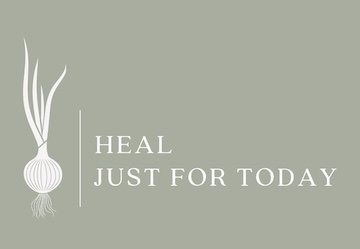Do you practice mindfulness? You’ve heard the term, but do you know how easy it is?
Mindfulness practices such as observation, deep breathing and meditation are excellent ways to become aware of how your mind and body feel at any given moment. Asking questions of yourself such as, are you stressed, relaxed, joyfilled, etc., can give you an opportunity to fine tune your thoughts to push out the negativity and replace it with positivity. Since thoughts create feelings and feelings create actions in your body, being mindful of the triggers in your daily life that feed chronic stress can help you prevent and even release pain and disease. The key is to become an observer of what’s happening in and around you rather than becoming an absorber and holding stress as a sponge holds water.
Practicing mindfulness just for today helps you to do what you’re doing when you’re doing it. When you’re walking, just walk. When you’re cooking, just cook. When you’re talking with someone, just talk with them. You get the idea. Just stick with one thing at a time and do it well.
For example, when you’re eating, look at the food before you put it in your mouth. Notice its color, shape and smell. Think about how it was grown and by whom. When you put it in your mouth, notice its texture, it’s flavor, and how your body feels as it takes in the nutrients, putting them exactly where they need to go. Becoming mindful and using food as medicine just for today are two of the most powerful things we can do to control our health. I call this eating with the intention to heal.
According to Psychology Today, “The emergence of mindfulness in Western culture can be attributed to Jon Kabat-Zinn. Kabat-Zinn studied mindfulness under several Buddhist teachers, such as Philip Kapleau and Thich Nhat Hanh. He discovered that patients would often try to avoid pain—but that that avoidance would lead to deeper distress. Practicing mindfulness was a more successful approach.”
A cancer diagnosis almost universally results in panic, anxiety and a sense of chaos as we reel from the fear of what we could lose. But what if just for a minute we employed a simple mindfulness practice and took a nice slow breath in and out, then asked ourselves what we’re meant to learn from the challenge and then take a minute to observe the results.
While cancer is regularly assigned so much import that for some it feels insurmountable to survive, it’s become clear to me that it is truly an invitation to heal fully by bringing awareness to our need for change in whatever form that might be. To become aware is to recognize your thoughts and feelings and then learn to use them to empower you in ways you’ve never conceived possible.
I once heard Rachel Naomi Remen, MD say, “When your physical body fails, you find you’re made of so much more.”
Below is a poem from one of my clients. It’s a rich portrayal of how the practice of mindfulness has brought gratitude back into her daily life.
A note to me from my client, Kathleen McCauley Anast:
“This poem specifically came after a conversation with you in which you shared something along the lines of how we want to remember and hold on to the gifts we receive from chemotherapy, for example being able to slow down, practice gratitude for every little part of our day, so we can continue to practice that once we’re finally feeling better. You also said it would be tricky, but you wanted me to be awake to the chemo and what it’s doing to the cancer.
During chemo, I had been doing something I have a habit of doing and believe our culture as a whole generally does as well. I was removing myself from my experience since it was too overwhelming and painful to accept. So, just a couple of days before we spoke and I received Reiki, I started telling myself that I would get healthy AFTER chemo and would pursue my goals AFTER chemo. I started to isolate and pull away and let chemotherapy be something that was happening to me, something I just had to endure.
I had developed that mindset several years before after participating in a group hosted by an indigenous shaman, Arkan Lushwala. He taught me that disease was about isolation. So, there I was starting to isolate myself from my experience and cutting off parts of me as to not allow my whole somatic self to “be in” the healing. In contrast, your teaching taught me to slow down and stand in the symptoms and be grateful for what I was able to accomplish even so. I managed my mind by focusing on the two weeks I would feel better in between chemo treatments, and that’s when this poem flowed through.
I honestly have never enjoyed making a bed, perhaps because my mother can do it so well and fit the sheets tight!
Read Holy Bed

